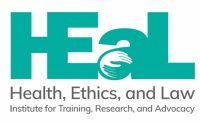About FMES
The FMES is a not-for-profit independent voluntary organization, registered under the Societies Registration Act, 1860 (Reg. No: Mumbai-218-1995-G.B.B.D.D); and the Bombay Public Trusts Act, 1950 (Reg. No: F-17441 Mumbai, 1995), in India. It is also registered under the Income Tax Act, 1961: Section 12A (Reg. No- TR/31522-1995); Section 80G (Order No- DIT(E)/MC/80G/172/2010-11). The members of the FMES are professionals and activists from various disciplines from different parts of the country. It is governed by the General Body of its members, and the Managing Committee and Office Bearers elected in the General Body meetings.
History of FMES
The Forum for Medical Ethics Society (FMES) emerged from a unique combination of activism and education/sensitization at the interface of the healthcare system and society’s needs; drawing concerned professionals from healthcare and from related fields such as the social sciences, humanities, law etc; as well as activists from civil society to work together. Although the formal organisation was registered in 1995, its work began in 1989, when a group of concerned activists and health professionals started meeting infrequently in the office of the neurosurgery department of the KEM hospital, Mumbai, to discuss ethical challenges in healthcare. The issues that exercised the group were the gross erosion of medical ethics and patients’ rights, dysfunctional medical councils, inequities in access to health care and the decline in the public health system. From 1991 to 1999, weekly meetings were regularly organised at the KEM hospital, the group conducted regular monthly open group discussions (they were called study circles) and interacted with associations of healthcare professions and with the voluntary groups such as Medico Friend Circle, health research NGOs and consumer groups. At the same time, the group also made efforts to intervene (e.g. contesting elections of Maharashtra Medical Council) and provide support to campaigns aimed at improving ethical standards and for universal access to health care. It was formally registered in 1995. These experiences made it clear that reforming the system was a long-term task involving activism for the education and sensitisation of health professionals and society. The group also resolved to work for the development of bioethics as a discipline in the medical and humanities curricula.
An essential step in this direction, in the late 1990s, was the setting up of a peer-reviewed bioethics journal - the Indian Journal of Medical Ethics – encouraging publication of research in the neglected areas of healthcare ethics and human rights. From 2005, FMES also established a platform for reflection, debate and the coming together of people interested in the improvement of the healthcare system through the National Bioethics Conferences held every two years. So far six such conferences (in 2005, 2007, 2010, 2012, 2014 and 2017) have been organized, each attracting between 300 to 700 participants.
The Indian Journal of Medical Ethics (IJME) and the National Bioethics Conferences (NBCs) have become the focal points of bioethics activity in India. We have emerged as the catalyst for bioethics activities in various organizations and institutions in the country. We serve as a platform that brings people together, to showcase research and writing and to promote interest in bioethics among various sections of the healthcare profession. Recently the FMES has established its third platform in the name of Health, Ethics and Law (HEaL) Institute for Training, Research and Advocacy.
